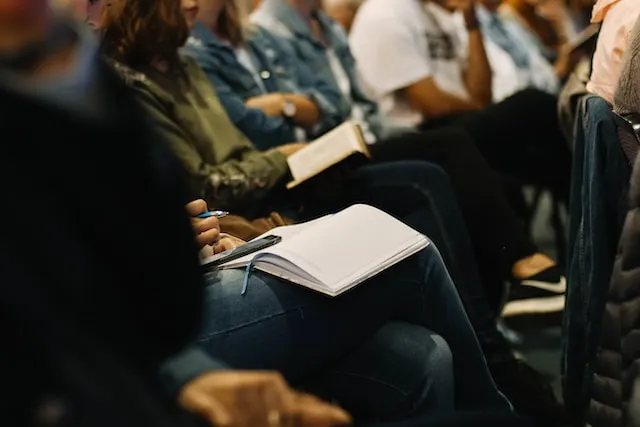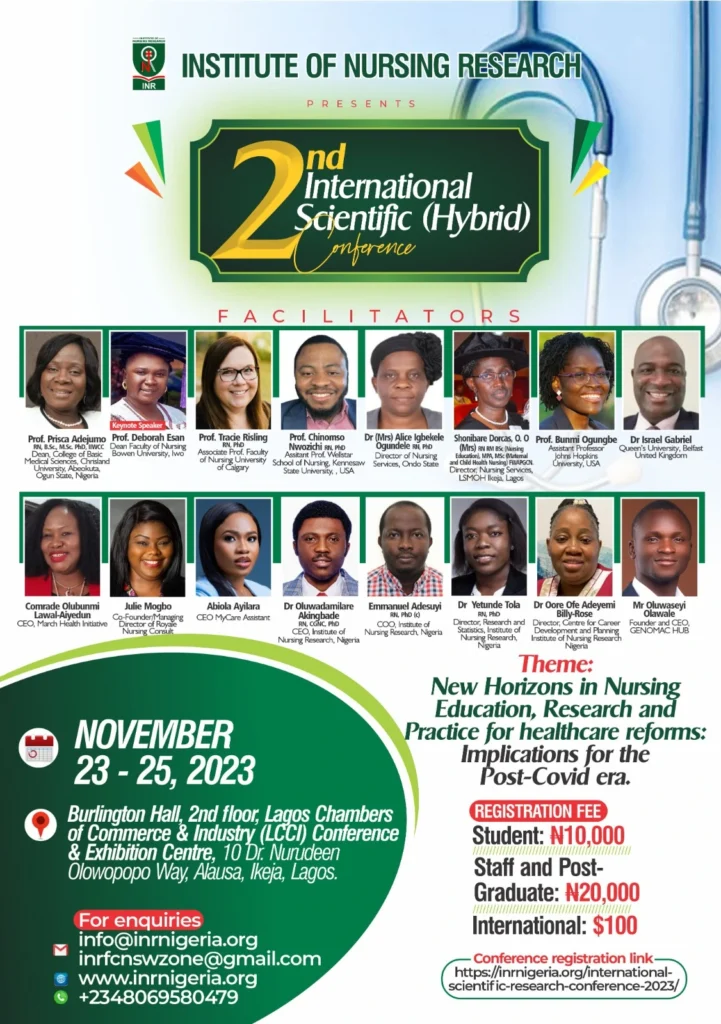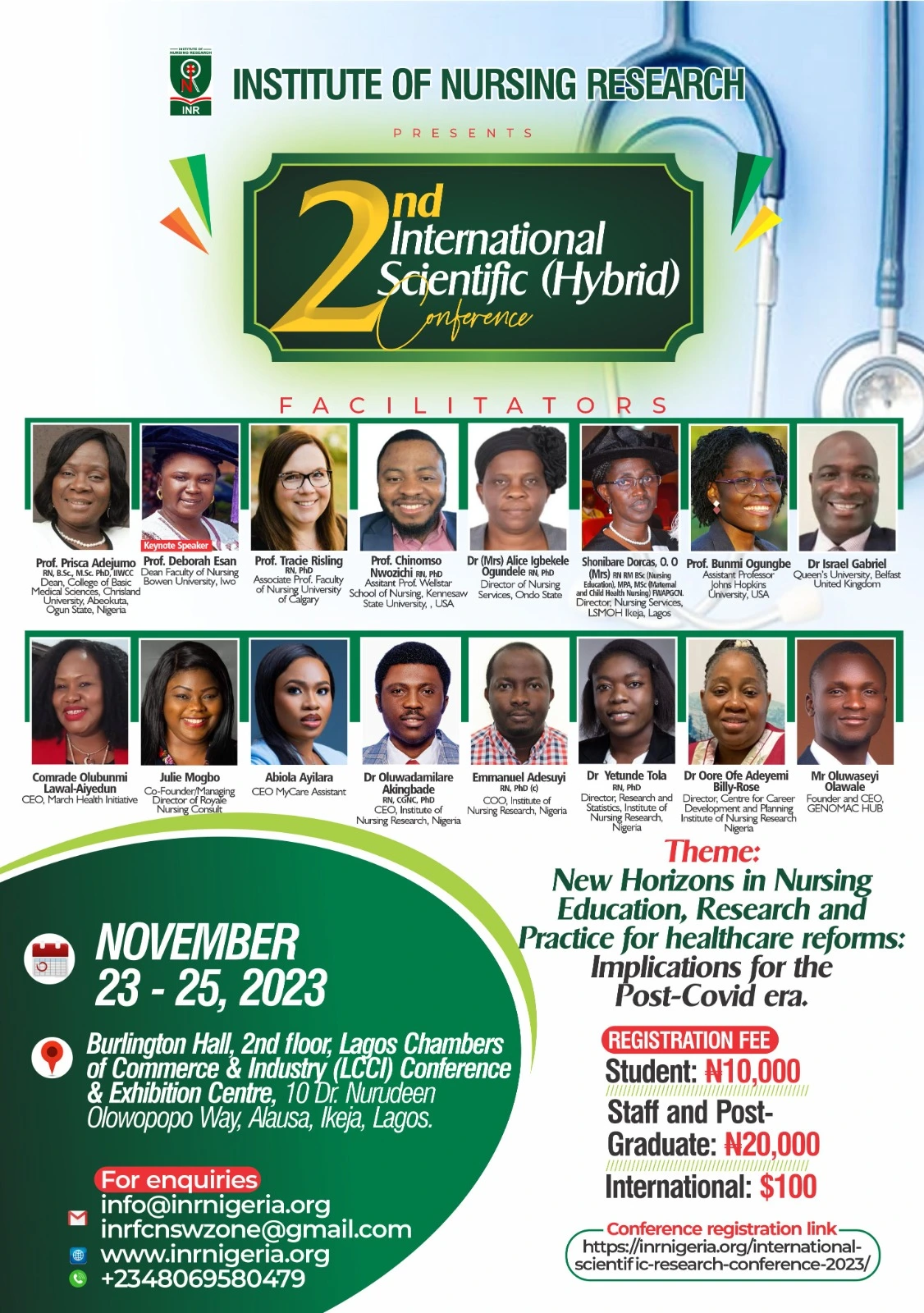We started this series with a brief introduction to scientific conferences. You can read the introduction here.
This next part will briefly look at an overview of scientific conferences.
If you have not registered for our upcoming international scientific (hybrid) conference, kindly reserve your spot now! Register here.
Overview of Scientific Conferences

A scientific conference (or an academic conference) is a gathering where scholars, academics or professionals present their scholarly works, discuss issues about their profession or fields of study and interact with other professionals, experts and leaders.
Referring to the mantra of Peter Ferdinand Drucker, which says, “If you can’t measure it, you can’t improve it”.
In this case, scientific conferences create a measurement channel in any field. They consist of scholars and professionals who have investigated certain areas in their field through curiosity and rigorous studies to add to or modify existing knowledge.
The Washington Conference of 1889 is recognized as one of the earliest documented conferences in history. It was also known as the first Pan-American Conference, initiated by the United States, and took place between October 2, 1889, and April 19, 1890. Although it was not a scientific conference, it provides insight into how far back people with similar intentions and agendas have collaborated, shared knowledge and ideas, and worked towards a common purpose. From the late 18th century until now, numerous types and forms of conferences have taken place, each with its unique feature and function.
An academic conference is an avenue where professionals get to expand their knowledge and exchange ideas.
Scientific conferences also serve as intellectual gatherings where scholars, academics, professionals and even students can reap invaluable insights and feedback into their various works as scholars, academics and professionals and sharpen their presentation and oratory skills.
It’s also an essential way scholars and academics can learn the culture of their profession or field of study.
In nursing academic conferences, young nurses can get the opportunity to socialise and interact with older nurses, nurse academics, nursing professors and top leaders and, in the process, imbibe the profession’s culture and also network and build professional relationships.
Scientific conferences usually adhere to a lecture-style format, in which a presenter presents their research, topic, academic papers, or abstracts to an audience. After this, selected experts or professionals lead discussions, workshops, or panel discussions, delving deeper into the conference themes and related concerns.
Ideal conferences usually feature keynote speakers who are allotted more time to deliver their talks, typically ranging from 30 minutes to about an hour. These speakers are often well-known scholars, leaders, and experts in their respective fields who have accomplished several academic or leadership milestones throughout their careers.
Have you seen our list of keynote speakers and guest speakers? If you haven’t, you can check them here. Our speakers are the finest in their respective fields and will be present to provide you with valuable knowledge and motivation.

Most modern conferences also provide networking opportunities for participants to meet and interact, talk and discuss anything among themselves. This system allows younger professionals the rare opportunity of directly interacting with top leaders, their mentors and experts in various academic fields that they usually won’t have access to.
Young professionals are encouraged to harness conferences and utilise them for professional development.
In our upcoming conference, you’ll be offered a very rare opportunity to meet nurses leading in their various fields. You can meet them and freely interact and share ideas with them.
You want to take advantage of this opportunity. We know you do.
In the next section, we will look at the types and forms of scientific conferences.
If you haven’t registered, you can register here now, or if you are having issues with registration, kindly reach out to Oyeleke Mary on WhatsApp.
If you have already registered and would like to know our available accommodation options, you can also reach out to Oyeleke Mary.

Leave a Reply